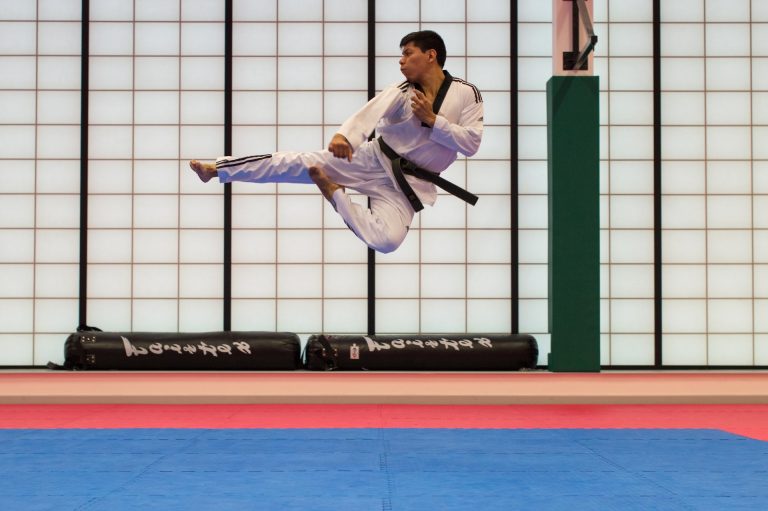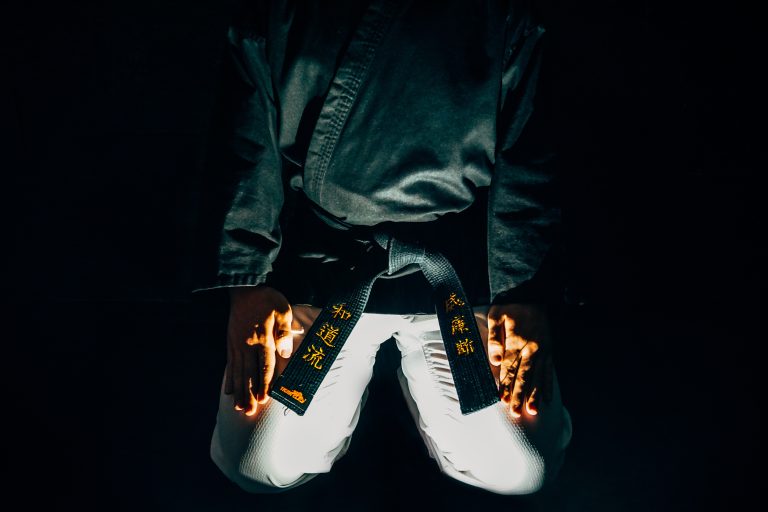Can children learn karate?
Karate is a popular martial art that originated in Okinawa, Japan. It has gained popularity worldwide because of its practical self-defense techniques and emphasis on discipline and self-confidence. However, many parents are skeptical about enrolling their children in karate classes. They wonder if their children are mature enough to learn such a skill or risk being injured. In this article, we will explore whether children can learn karate and the benefits it can offer.
The benefits of karate for kids
Karate for kids offers several benefits, both physical and mental. Physically, it improves their strength, balance, coordination, and flexibility. Karate involves a lot of kicking, punching, and blocking, which helps to develop the child’s muscles and cardiovascular system. Moreover, karate offers an excellent way to burn off energy as well as develop focus and concentration skills.
Mentally, karate can help children to develop self-confidence, self-discipline, and respect for others. It gives them a sense of purpose and achievement as they progress through the different belt levels. Karate also helps to develop social skills by providing opportunities for working in groups, making friends, and learning how to cooperate and communicate.
Can children learn karate?
The short answer is yes, children can learn karate. Karate classes for kids are designed to be age-appropriate and safe for children. Trained karate instructors know how to modify techniques and drills to ensure that children don’t get hurt. They also teach children martial arts philosophy, including respect for others, teamwork, and discipline. However, it is crucial to enroll children in a reputable karate school with experienced instructors.
How young can children start learning karate?
Most reputable karate schools will accept children as young as four years old. However, classes for children that young usually focus on games and fun activities that teach the basic karate skills. Children’s karate classes typically start with basic punches, kicks, and blocks, then progress to more complex techniques as the child becomes more experienced.
Conclusion
Karate has many benefits for children, both physical and mental. It can help to develop their strength, balance, coordination, flexibility, focus, and self-confidence. Moreover, it provides an excellent way for children to burn off energy and learn social skills. Children can start learning karate as young as four years old, as long as they attend reputable karate schools with experienced instructors. In conclusion, karate is a safe and practical martial art that is suitable for children of all ages.
Can Children Learn Karate?
Karate is a martial art that has been widely practiced for centuries. It is an incredible sport that fully engages both the mind and the body. Today, karate is a discipline that’s enjoyed by adults and children alike. However, many parents have several questions when it comes to kids learning karate. In this post, we’ll answer the most frequently asked questions about children learning karate.
1. What Age Should a Child Start Learning Karate?
One of the most frequently asked questions about children learning karate is what age is recommended to start. Although there are different opinions on this subject, most experts agree that children aged four and above can learn karate.
Karate classes for four-year-olds are usually much different from classes for older children that may include teenagers or adults. For example, classes for younger kids often focus on play-based learning, like movement and balance exercises, where teens and adults will typically learn more complex techniques and sparring practices.
Ultimately, the decision regarding the age to start your child off in karate will depend on your child’s interests and abilities, as well as your judgment as a parent.
2. Will Karate Do More Harm than Good to My Child?
This question is common among parents who are new to karate and worried about injuries. While learning karate involves contact, the discipline itself teaches kids the value of respect, patience, perseverance, and self-discipline. Additionally, it also improves flexibility, attention skills, and coordination in children.
The best way to ensure your child’s safety during karate practice is to enroll them in a reputable dojo with experienced and qualified instructors. Instructors should teach kids in a safe environment free from bullying, injury, and other negative behaviors.
3. Will Learning Karate Make My Child Violent?
One of the most common misconceptions about karate training is it encourages violence. Still, nothing could be further from the truth. Karate is a discipline that teaches respect, honor, and control above all else.
Karate teaches children how to use their bodies to defend themselves, not to attack others. Additionally, karate teaches your child humility, focus, and self-control.
4. Can Karate Be a Good Form of Exercise for My Child?
Yes, karate is an excellent form of exercise for children. Unlike traditional workouts that only focus on developing the physical aspect of fitness, karate also focuses on developing the mental aspects of fitness.
During karate practice, children learn to breathe correctly, control their body movements, and gain self-awareness. The practice of karate helps children’s bodies stay fit and healthy, which will lead to long-term health benefits.
5. Will Karate Training Enhance My Child’s Confidence?
Yes, karate training helps enhance your child’s confidence. Children who participate in karate are encouraged to challenge themselves, overcome obstacles, and push beyond their limits. Through hard work and dedication, these children learn the value of persistence, resilience, and determination.
As your child progresses through karate training, they gain a sense of achievement and develop a sense of self-worth. This confidence gained translates to other aspects of their life as well.
6. How Often Should My Child Train?
The frequency of karate practice for children will depend on the child’s age, experience, and abilities. Generally, younger children have a shorter attention span than older children and may struggle to concentrate for more extended periods. It is recommended that young children participate in one to two karate classes per week.
As older children progress through the ranks, they may train more frequently, from two to three times per week. While it’s essential to find the right balance, make sure to prioritize other activities outside of karate like playing, having fun, and participating in other hobbies.
7. What are the Different Belt Levels in Karate?
The Martial Art industry has a standardized grading system that applies to most dojos worldwide. The grading system represents the progress of the practitioner, who is ranked based on their skill level, knowledge, and time in the practice. Beginning with yellow belts, the ranking goes all the way to a black belt.
The exact ranking, system, and the time it takes to move from one rank to another may vary depending on the dojo. The total time taken for a child to reach from yellow to black belt varies depending on their age, progress, skills, competency, and attendance.
Conclusion
Karate is an important discipline that helps children develop many aspects of their personalities, ranging from focus and self-confidence to physical fitness, mental flexibility, and self-discipline. Despite common misconceptions about karate training being violent or potentially harmful to children, the opposite is true. As parents, it’s important to enroll your child in a reputable dojo with experienced instructors who teach karate safety, focus on fun, and that promotes positive behavior.
If you’re considering signing your child up for karate, start by setting up a consultation session with an accredited dojo, speaking to the instructors, and gaining more knowledge about karate. This way, you’ll have a better understanding of the discipline, the rewards, and the potential risks that come with the practice, and ultimately make an informed and educated decision.
Inhaltsverzeichnis






